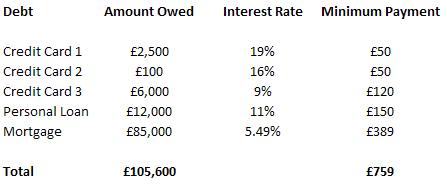As part of my ongoing frugal blitz of my finances I have now identified 5 things I waste money on on a regular basis which I will now cut from my expenditure going forwards. These are common items which most people will buy now or at some time.
By opting for an alternative I can save a considerable amount of money each month!
Pre-packed Sandwiches
This is big business – everyone is selling them – supermarkets, newsagents, petrol stations. I usually buy a sandwich for my lunch as there is a large supermarket near my office. When you add the cost of the sandwich, a packet of crisps, a drink and some fruit I am easily spending upwards of £5.00 per day for lunch.
A typical pre-packed sandwich will contain the following:
1 Slice of bread
Some margarine
A filling (normally more salad than filling)
Plastic packaging
From now on I will buy sandwich bags from the supermarket and make my own sandwiches.
Bottled Water
Crikey – this stuff is more expensive than petrol! If I am in dire need of buying a bottle of water I will always opt for the larger 1.5 litre bottles as the smaller bottles are prohibitively expensive in my opinion. I have invested in a water filter for the office and keep it in the fridge.
Monthly Gym Membership
I signed up for the local gym about 18 months ago and, at first, I was very regimented and went 3 times each week. The monthly subscription started at £60 per month, which, based on my initial usage was £5 per visit, which I considered good value for money based on use of the gym, sauna, steam room, jacuzzi and a few lengths in their olympic-size pool.
Time and work pressures mounted to a point were now I go one a week if possible – this works out at £15 per session which is not great – I have looked around and can get the same equipment at my local “leisure centre” for a third of the price – so I am cancelling my gym membership but will reinstate it if my use of the local leisure centre increases again in the future.
Extended Warranties
I, like many others, are offered extended warranties when I buy goods in electrical stores. I never take the extended warranty as I don’t personally believe they offer great value for money – I instead ask what the cost is and place that amount in a savings account – I have managed to accumulate over £1,400 in the last 3 years.
Instead, I rely on the Sale of Goods Act 1979 – all products should be fit for their purpose and of merchantable quality. I have had to argue on a couple of occasions with shop managers but both times I have managed to get my item replaced.
Newspapers and Magazines
I generally find that newspapers and magazines are filled with articles I am not interested in or page after page of advertisements. Knowing that the majority of magazines with low circulation make their income from selling advertising space rather than selling copies, many magazines these days seem to simply be a collection of adverts, interspersed with the odd article.
Any news in print is out of date! I can get instant news online and therefore have no need to purchase a newspaper any longer.
Can you think of any other wastes of money? Please add your comment below.
